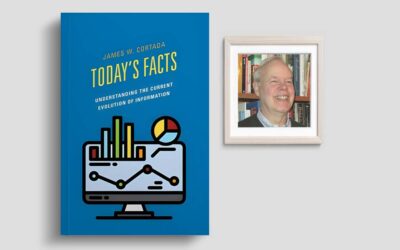Interview with the Author: Melissa Miller; Mind, Motivation & Meaningful Learning
Lauren Hays
Recently, I had the opportunity to interview Melissa Miller about her book Mind, Motivation and Meaningful Learning Strategies for Teaching Adult Learners. This book is very useful for anyone who teaches adult learners.
Lauren Hays: Please briefly summarize Mind, Motivation and Meaningful Learning Strategies for Teaching Adult Learners.
Melissa Miller: My book provides a blueprint for academic librarians, though it could be any educator, for instructional design to help facilitate teaching adult learners and in an online environment, although it could be scaled to scope for in-person instruction or professional development training, etc. One of the goals for my book was that it could be adaptable to any type of teaching or instruction. To summarize Mind, Motivation and Meaningful Learning Strategies for Teaching Adult Learners – I would say it has the tools necessary for academic librarians to teach adult learners to identify, evaluate, and apply appropriate cognitive, learning and motivation strategies based on the course content and adult learners will have a deeper understanding of the meta-cognitive or reflection component as the assessment piece.
Lauren Hays: What prompted you to write this book?
Melissa Miller: I was prompted to write this book after my own experience in the first cohort of an online master’s graduate program at a major university. On one hand, it was exciting to be a part of the initial development of an online master’s graduate program, on the other hand, it was also challenging as all the kinks of a new graduate program were worked out. When I began my doctoral program, it was my research into cognitive science theories, learning and education theories and how motivation theories intersected with those through curriculum and instructional design to produce an authentic and meaningful experience for adult learners the sparked the idea for a book.
Lauren Hays: You touched on this with your response to the last question, but why do you believe it is important that librarians understand strategies for teaching adults.
Melissa Miller: Without a carefully designed curriculum that is mindful of adult learners’ varied experience, agency, emotions, and that fosters a more inclusive learning experience, adults may become overwhelmed and lost and find it difficult to achieve their learning goals. This is especially true for academic teaching librarians, who may get only one chance to engage students during an information literacy instruction session during a semester. Ideally the academic teaching librarian would be embedded into a semester-long course with several interactive engagement opportunities with the students. With this in mind, academic teaching librarians need as many tools at their disposal as possible to make informed decisions about what components to include as they are designing their instruction session(s). Whether its collaborating with the subject area department faculty; teaching workshops; teaching for-credit courses; or creating training and learning tutorials, etc.
Lauren Hays: In what ways, do you see the teaching role of librarians changing?
Melissa Miller: This book was adapted from my dissertation which was completed in 2018. At that time, many people were still not teaching and learning online. Then just two years later the pandemic hit, and everyone had to go online for research, learning, and teaching. Many academic teaching librarians were already utilizing research, learning, and teaching tools, including software, and platforms specifically for an online environment in their instructional design and curriculums. Now that everyone has had experience with these tools, and we are back on campus’ in-person, there is a higher demand, and expectation, that all services, including instruction, will include a virtual option.
Lauren Hays: What theories do you discuss in the book and why those?
Melissa Miller: Andragogy, social cognitive theory, and motivational systems are all tools that apply to academic teaching librarians and the work they do. Academic librarians will find this book especially relevant to informing their instructional design and on-demand reference interactions. Andragogy refers to a theory of adult learning and, according to Malcolm Knowles, is the art and science of helping and teaching adults to learn. Next, Albert Bandura’s social cognitive theory which emphasizes that learning occurs in a social context and entails several constructs, including goal setting, learning vicariously, and increasing self-efficacy – the belief about one’s ability to complete a certain task. Lastly, Martin Ford’s motivational systems theory focuses on motivation through the understanding of emotions, goals, and the development of personal agency. Having personal agency and increased self-efficacy will alter the learners’ motivational strategies, therefore empowering the learners to take agency with their own lives. This resilience leads to an intrinsically motivated, goal-oriented, and reflective mastery approach to learning.
Lauren Hays: How do you hope people use the book?
Melissa Miller: Appropriately designed instruction scaffolds the learners’ experience through activities meant to increase self-efficacy through successfully achieving their learning goals and capacity for meaningful reflection. Feelings of success lead to learners’ achievement, which leads to mastery. My book lays the foundation for a semester-long seven-unit scaffolded course, but was designed so any unit, or portion of a unit, can be adapted to fit the needs of the learners and the educators. Now more than ever, online education curriculum and instructional design needs to incorporate motivation, learning, and cognitive science theories to ensure learners feel engaged and valued. Colleges and universities have begun asking themselves questions about – what are the short- and long-term implications for: teaching; learning; the student experience; the infrastructure; operations; their faculty; and staff. Many have already begun to invest in extensive training for research, learning, and teaching in an online environment and still be able to provide a high-quality education and work experience, and I hope my book is included in the investment for the future of research, learning, and teaching.
Lauren Hays
Lauren Hays, PhD, is an Assistant Professor of Instructional Technology at the University of Central Missouri, and a frequent presenter on topics related to libraries and librarianship. Her expertise includes information literacy, educational technology, and library and information science education. Please read Lauren’s other posts relevant to special librarians. And take a look at Lucidea’s powerful integrated library systems, SydneyEnterprise, and GeniePlus used daily by innovative special librarians in libraries of all types, sizes and budgets.
Never miss another post. Subscribe today!
Similar Posts
Interview with the Author: Jim Cortada on Today’s Facts and the Evolution of Information
Dr. James Cortada, historian and senior research fellow at the Charles Babbage Institute, explores the history of information in his forthcoming book. By examining how information has been created, organized, and used over time, Cortada reveals patterns that continue to shape modern librarianship and knowledge management.
The Complicated Feelings Librarians May Have About AI
GenAI will affect how we do our work and the type(s) of work we engage in. In navigating the transformative potential of GenAI, we should engage in reflective practice that centers on our core professional values.
Recommended AI Literacy Frameworks for Special Librarians
These frameworks provide insights and approaches to help you determine the best ways to address build and promote AI literacy in your specific context.
Intentional Growth: Special Librarian Professional Goals for 2025
Setting professional development goals may feel overwhelming, but with the right framework and mindset, it can be a rewarding and empowering process.




Leave a Comment
Comments are reviewed and must adhere to our comments policy.
0 Comments